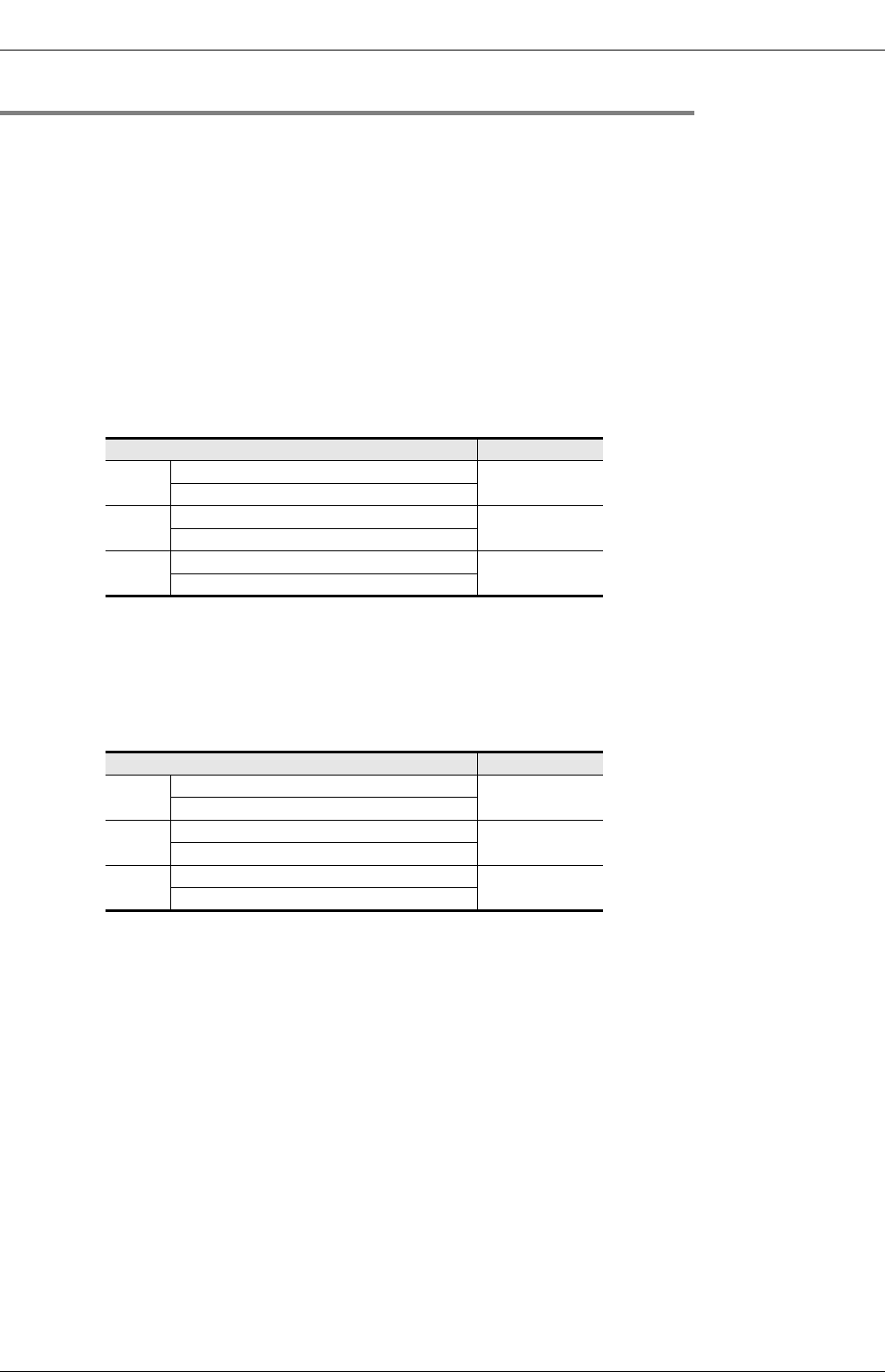
14 Test Operation, Adjustment, Maintenance and Troubleshooting
14.4 Maintenance and Periodic Inspection
208
FX3G Series Programmable Controllers
User's Manual - Hardware Edition
14.4.3 Maintenance - product life of relay contacts
The product life of relay contacts varies considerably depending on the load type used. Take care that loads
generating reverse electromotive force or rush current may cause poor contact or deposition of contacts
which may lead to considerable reduction of the contact product life.
1. Inductive load
Inductive loads generate large reverse electromotive force between contacts at shutdown, which may cause
arcing. At a fixed current consumption, as the power factor (phase between current and voltage) gets smaller,
the arc energy gets larger.
1) Main units and Input/output powered extension units and input/output extension blocks
→ For the applicable models, refer to Chapter 3.
The standard life of contacts used for Inductive loads, such as contactors and solenoid valves, is 500,000
operations at 20VA.
The following table shows the approximate life of a relay based on the results of an operation life test.
Test condition: 1 sec. ON / 1 sec. OFF
2) FX Series terminal blocks
→ For the applicable models, refer to Chapter 3.
The standard life of contacts used for Inductive loads, such as contactors and solenoid valves, is 500,000
operations at 35VA.
The following table shows the approximate life of a relay based on the results of an operation life test.
Test condition: 1 sec. ON / 1 sec. OFF
The product life of relay contacts becomes considerably shorter than the above conditions when the rush
overcurrent is shut down.
Please refer to the following measures regarding the inductive load.
→ For precautions on the main unit, Input/output extension units, Input/output extension block,
refer to Subsection 12.1.3-2.
→ For precautions on inductive loads for the terminal block, refer to Subsection 20.7.4-2.
Some types of inductive loads generate rush current 5 to 15 times the stationary current at activation.
Make sure that the rush current does not exceed the current corresponding to the maximum specified
resistance load.
Load capacity Contact life
20VA
0.2A/100V AC
3,000,000 times
0.1A/200V AC
35VA
0.35A/100V AC
1,000,000 times
0.17A/200V AC
80VA
0.8A/100V AC
200,000 times
0.4A/200V AC
Load capacity Contact life
35VA
0.35A/100V AC
3,000,000 times
0.17A/200V AC
80VA
0.8A/100V AC
1,000,000 times
0.4A/200V AC
120VA
1.2A/100V AC
200,000 times
0.6A/200V AC


















